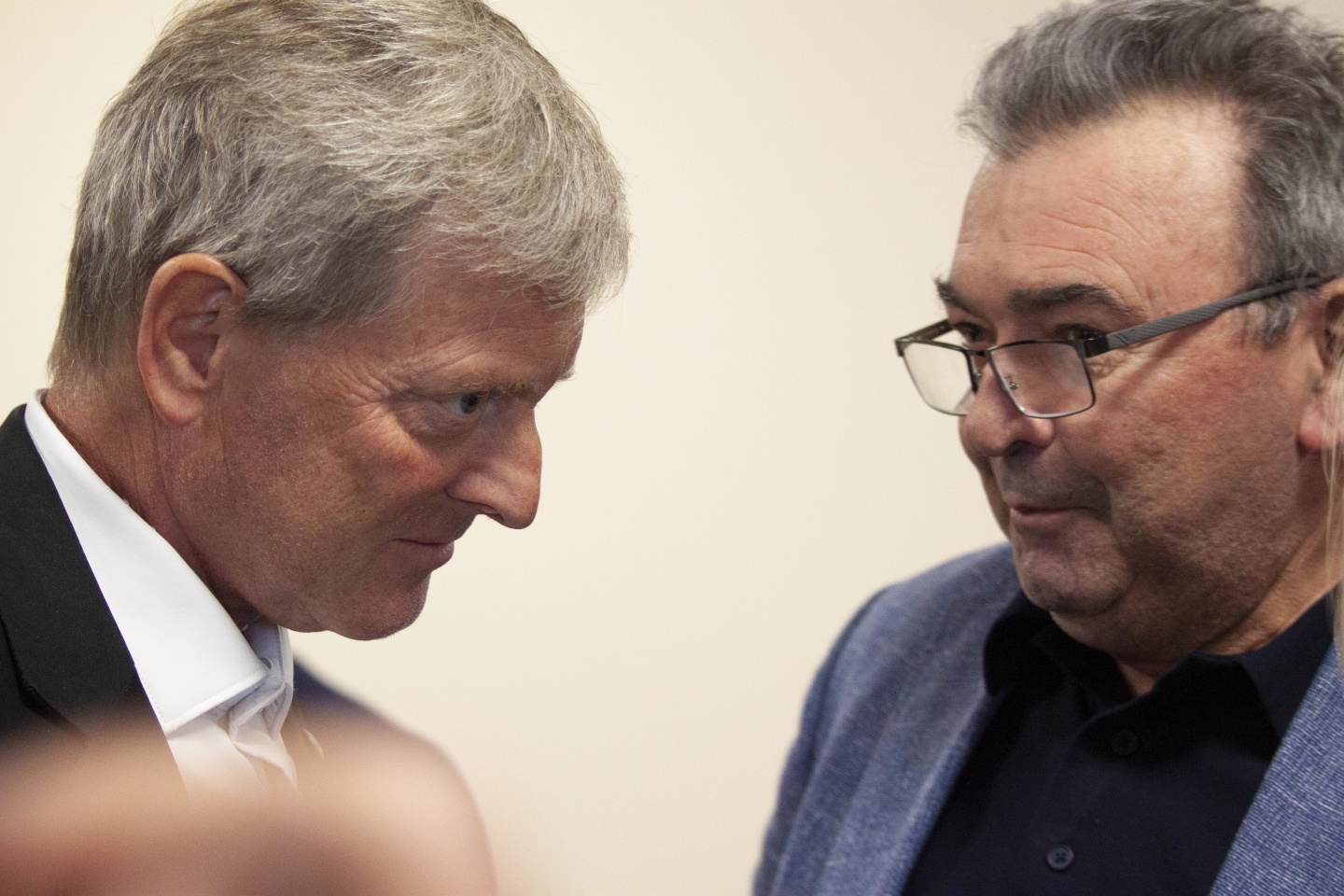20 June, 2024I recently visited Ukraine and, while I didn't witness much of the devastation firsthand, my meetings with our affiliates and discussions about the abhorrent consequences of the Russian invasion revealed a stark reality. Over 6 million Ukrainians have fled the country, with hopes that most will one day return. Inside Ukraine, nearly 6 million people are displaced, seeking safety within their own borders.
Together with an International Trade Union Confederation (ITUC) delegation led by General Secretary Luc Triangle we visited Ukraine on 14-15 May 2024 to reaffirm the global trade union movement’s support of workers and their unions in the country. The group included Christy Hoffman (General Secretary UNI-Global Union), and Paul Nowak (General Secretary TUC-UK).
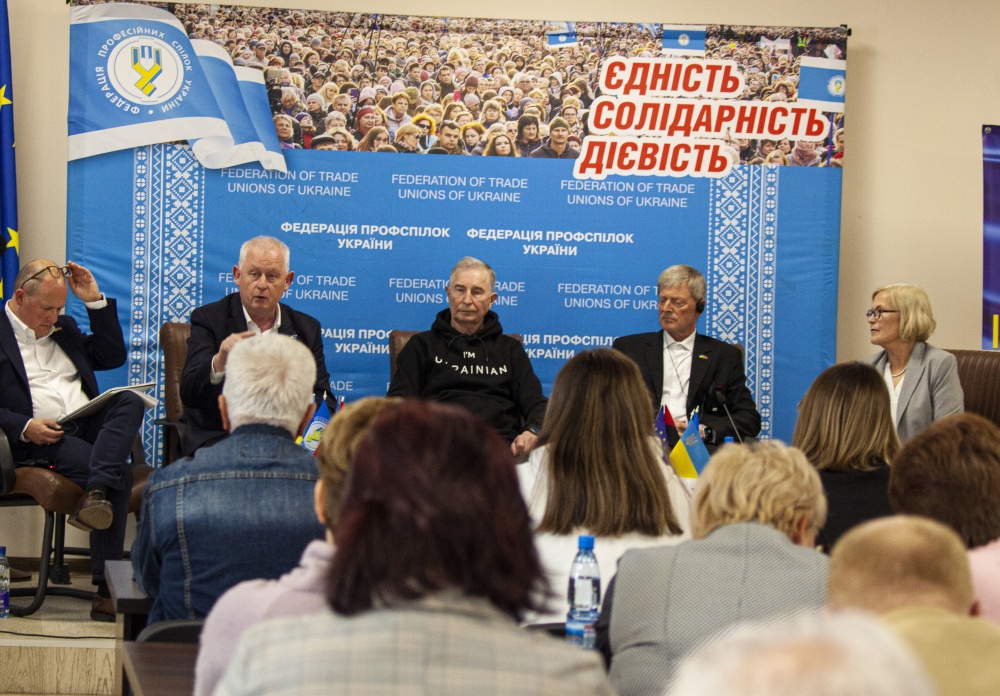
Trade union delegation ITUC, UNI InsutriALL and TUC with president of the Federation of Trade Unions of Ukraine
Ukrainian workers are suffering. They've lost jobs, incomes, and homes. Families are torn apart, fleeing both within and outside Ukraine. With all this, they are also defending their country.
Attacks on coal mines and power facilities are blatant acts of terrorism aimed at crippling Ukraine's infrastructure. In Kyiv, we visited a thermal power plant that had been bombed to pieces just one month prior to our arrival. This stark reminder underscores the Russian strategy of targeting critical infrastructure to make life as difficult as possible for the Ukrainian population. The destruction of power plants is a deliberate attempt to plunge the population into darkness and suffering. The intention behind these attacks is clear and malicious
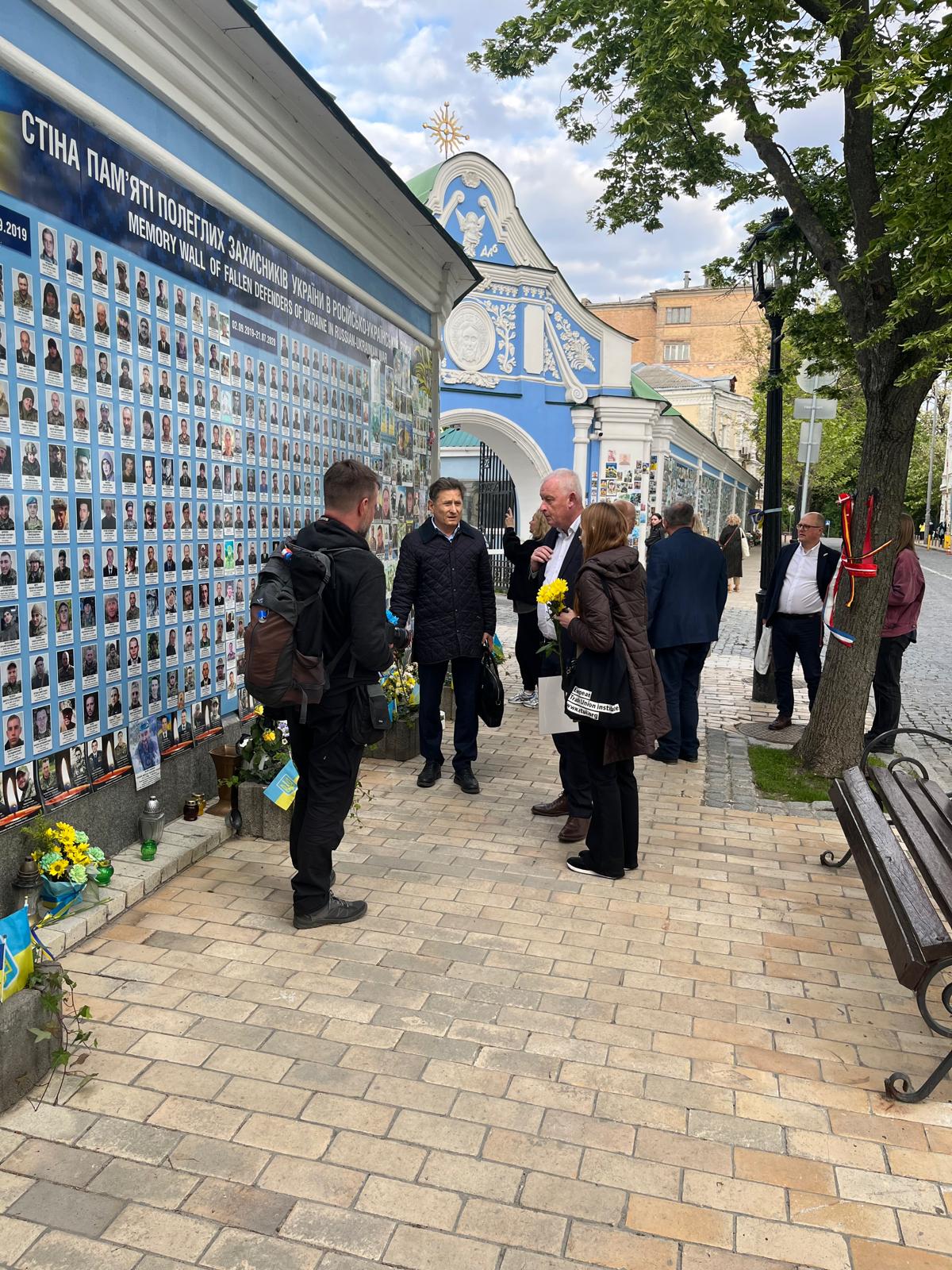
Wall stretching hundreds of meters, filled with pictures of those killed since 2014
In Kyiv, life almost seems normal on the surface. Shops are open, and people go about their day. However, a closer look reveals the underlying tension and preparedness for conflict. Before you arrive, you must install an Air Raid Alarm application that sends notifications of potential attacks, prompting immediate shelter. Statues and artworks, symbols of cultural heritage, are protected, highlighting the cultural risks at stake. In Maidan Square, flags planted in the ground commemorate each person who has died, put there by families who have lost their loved ones, creating a powerful and heartbreaking display. A wall stretches for hundreds of meters, filled with pictures of those killed since 2014, underscoring that this war has been ongoing for much longer than the past two years.
The parliament building and surrounding homes are barricaded with sandbags, a stark reminder of the constant threat and the necessity to be prepared for anything. This sight provides a clear understanding of the level of expectation and readiness for potential attacks.
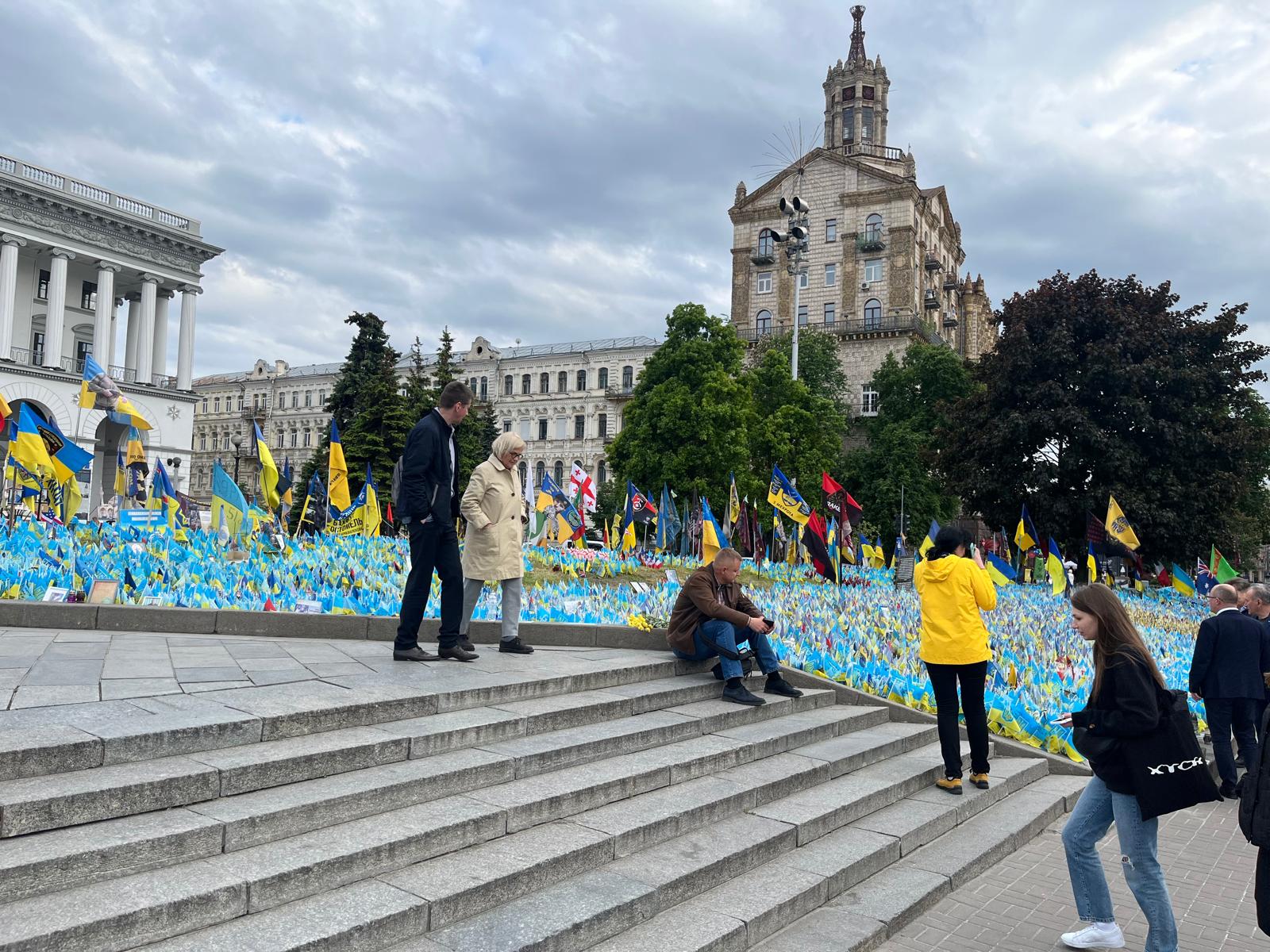
Flags planted in the ground to remember lost ones in Maiden Square
The human cost is shocking. Official numbers of the dead range, but locals believe the toll is much higher than what is being reported, possibly over 100,000. Each flag in Maidan Square represents a life lost, a family shattered.
Ukraine’s air defence is not strong, enough and the threat of attacks is constant. During our visit, U.S. Secretary of State Antony Blinken was in Kiev, and there were no attacks, which must have felt to Ukrainians like a brief pause in this continuous assault. Usually 3 to 4 alarms a day would go off and people would have to find shelter.
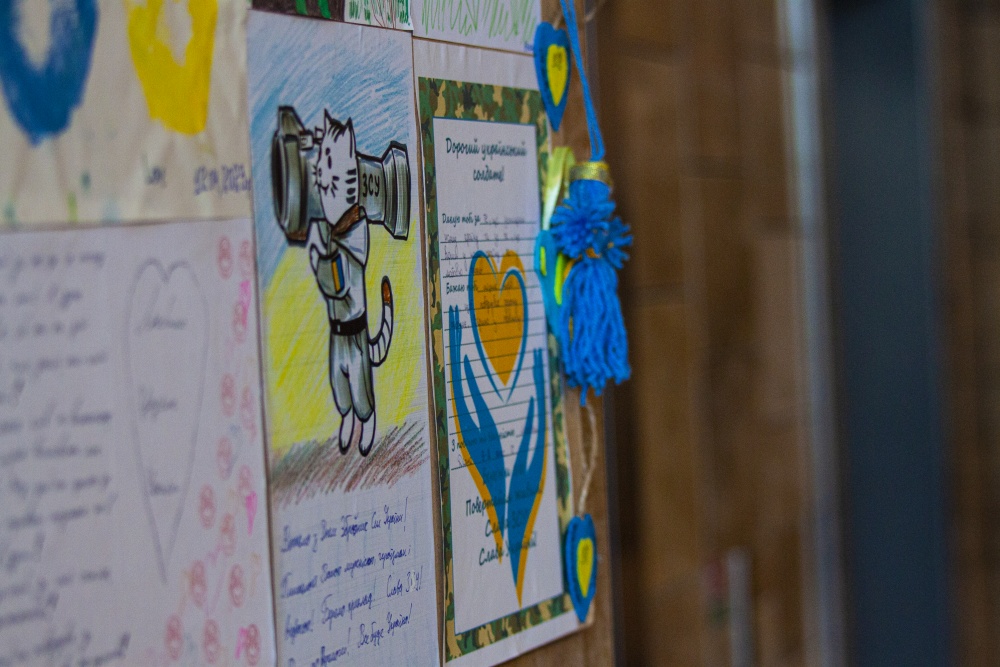
Children's hospital
Mostly, life in Kyiv functions like normal, but our visit to a children's hospital revealed the harsh realities of the war. We saw children arriving without legs or arms, some traumatized and paralyzed, not from physical injuries, but from the sheer psychological impact of the conflict. Speaking with kids from Kharkiv, where some of the hardest battles are raging, was a sobering experience. It was a terrible wake-up call for anyone who might not fully grasp the horrors that Ukrainians are enduring.
The unions that we visited were incredibly appreciative of our presence. They saw us as brave for coming, though our brief 36-hour visit was nothing compared to what they have to deal with every day. The courage and composure of these union leaders were inspiring. Despite everything, they remain focused and determined, knowing exactly what they need to do to support their members and their country.
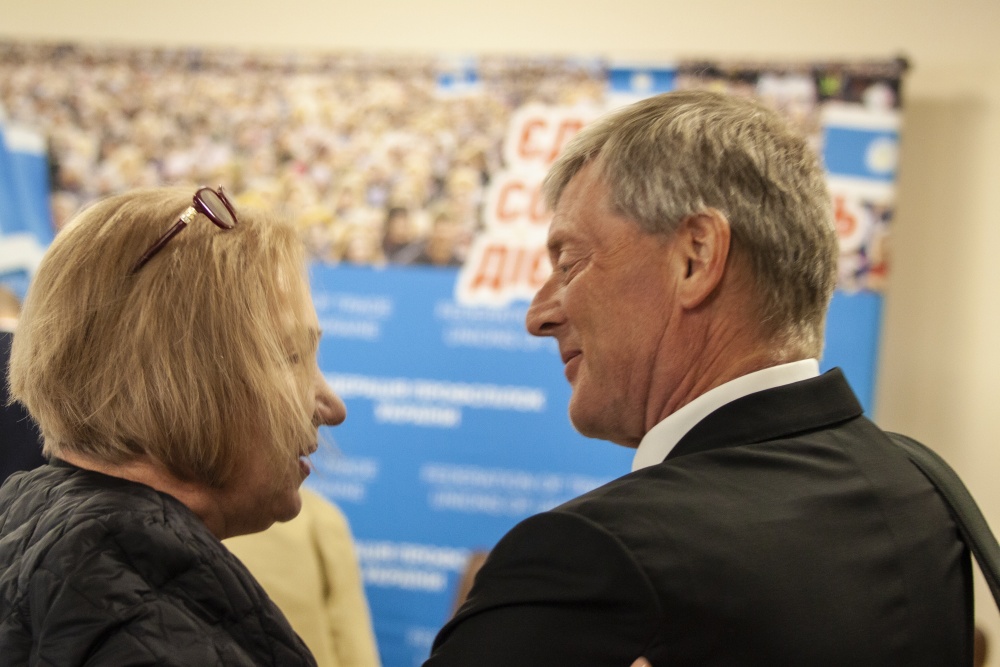
Lesia Semeniaka International Officer of Atomprofspilka with Atle Høie during his visit
The unions' resilience is matched by their pragmatism. They understand the necessity of keeping the conflict visible on the global stage, pleading for continued support. They are not asking for pity but for solidarity and practical help. Their ultimate goal is to win the war, to ensure that Ukraine's sovereignty is respected and upheld.
If we allow Russia to annex territories recognized by the United Nations as part of Ukraine, we set a dangerous precedent. Where do we draw the line next time? The strength and resolve of the Ukrainian people is a testament to their firm spirit. They are fighting not just for their country, but for the principles of freedom and sovereignty that should be upheld worldwide.
Throughout our discussions, we addressed the implementation of the new worker-hostile labour legislation and the abolition of social dialogue. Everyone we spoke with, agreed that new labour legislation cannot be implemented without the involvement of workers and their unions. However, the government canceled our meeting at the last minute, avoiding the need to explain why they are proceeding without such crucial involvement.
On our 20-hour train ride back to Poland, the train was filled with women because men are not allowed to leave Ukraine. They spoke of needing a break from the constant fear and hardship. Their stories were a reminder of the emotional and psychological toll of this war.
What we saw just scratches the surface. When you see the kids and what they’ve had to endure at such a young age, you realize this is just the tip of the iceberg, and it really gets to you. It was hard to sleep on that train. Besides the constant passport control, the images in your head make it difficult to process everything, and we didn’t even visit the front line.
My visit to Ukraine was a sobering reminder of the profound human cost of this conflict, but most of all it reinforced my belief that war has only losers and must be avoided. We must continue to keep Ukraine in our thoughts and on our agendas, ensuring that the sacrifices of its people are not forgotten, and that their fight for freedom is supported. The bravery and resilience of Ukrainian workers and their unions are nothing short of extraordinary, and their struggle is one that demands our support.
